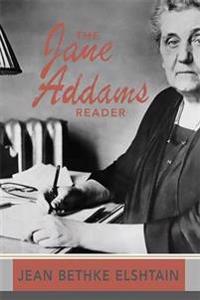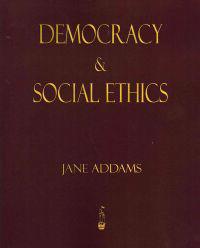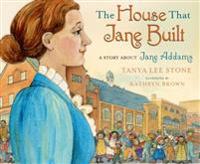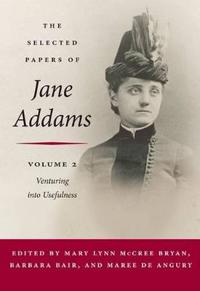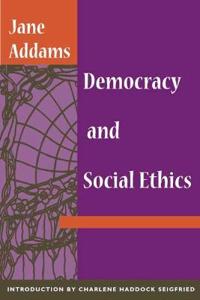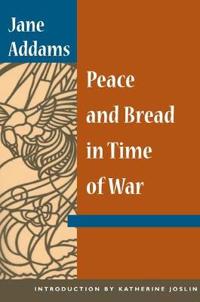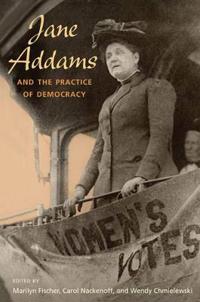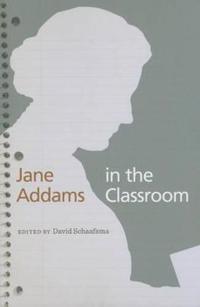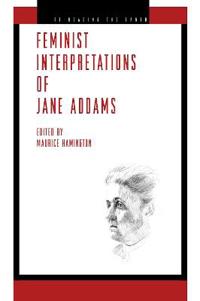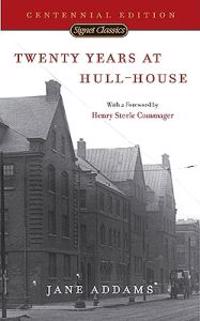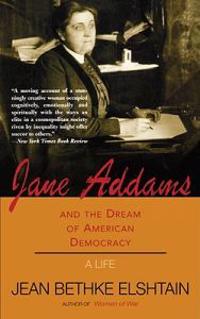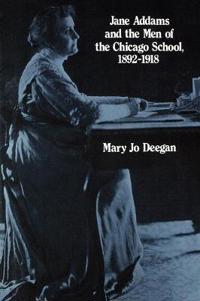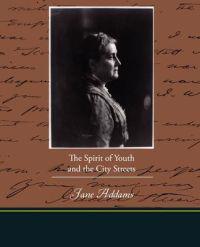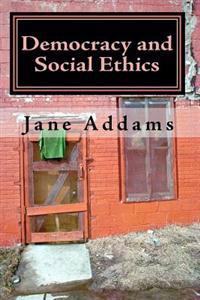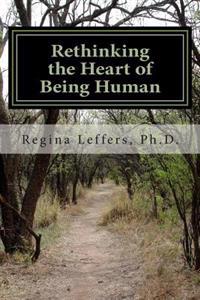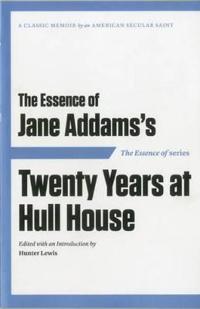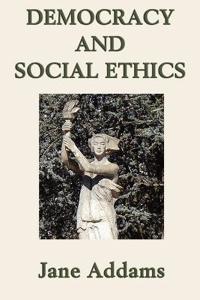The Jane Addams Reader (Pocket)
avJane Addams, Jean Bethke (EDT) Elshtain, Jean Bethke Elshtain
ISBN: 9780465019151 - UTGIVEN: 2001-12Jane Addams was a prolific and elegant writer. Her twelve books consist largely of published essays, but to appreciate her life work one must also read her previously uncollected speeches and editorials. This artfully compiled collection begins with Addams's youthful Junior Class Oration on women as[...]
The House That Jane Built: A Story about Jane Addams
ISBN: 9780805090499 - UTGIVEN: 2015-06This is the story of Jane Addams, the first American woman to receive the Nobel Peace Prize, who transformed a poor neighborhood in Chicago by opening up her house as a community center.[...]
The Selected Papers of Jane Addams (Inbunden)
avMary Lynn McCree (EDT) Bryan, Barbara (EDT) Bair, Maree (EDT) De Angury
ISBN: 9780252033490 - UTGIVEN: 2010-01"Venturing into Usefulness", the second volume of The Selected Papers of Jane Addams, documents the experience of this major American historical figure, intellectual, social activist, and author between June 1881, when at twenty-one she had just graduated from Rockford Female Seminary, and early 188[...]
Democracy and Social Ethics (Häftad)
avJane Addams, et al
ISBN: 9780252070235 - UTGIVEN: 200111Nearly a century before the advent of "multiculturalism," Jane Addams put forward her conception of the moral significance of diversity. Each member of a democracy, Addams believed, is under a moral obligation to seek out diverse experiences, making a daily effort to confront others' perspectives. M[...]
Peace and bread in time of war (Pocket)
avJane Addams, Katherine (INT) Joslin, Katherine Joslin
ISBN: 9780252070938 - UTGIVEN: 2002-11First published in 1922 during the "Red Scare," by which time Jane Addams' pacifist efforts had adversely affected her popularity as an author and social reformer, "Peace and Bread in Time of War" is Addams' eighth book and the third to deal with her thoughts on pacifism. Addams' unyielding pacifism[...]
Jane Addams and the Practice of Democracy
ISBN: 9780252076121 - UTGIVEN: 2008-12Using a rich array of newly available sources and contemporary methodologies from many disciplines, the ten original essays in this volume give a fresh appraisal of Addams as a theorist and practitioner of democracy. In an increasingly interdependent world, Addams's life work offers resources for ac[...]
Jane Addams in the Classroom
ISBN: 9780252080258 - UTGIVEN: 2014-10Once intent on being good to people, Jane Addams later dedicated herself to the idea of being good with people, establishing mutually-responsive and reciprocal relationships with those she served at Hull House. The essays in Jane Addams in the Classroom explore how Addams's life, work, and philosoph[...]
Feminist Interpretations of Jane Addams
ISBN: 9780271036946 - UTGIVEN: 2010-09Although Jane Addams's Twenty Years at Hull-House is considered an American classic, her dozen books and hundreds of published articles have sometimes been thought of as quaint examples of an overly optimistic era. Beginning in the 1990s, feminist scholars rediscovered the vitality of Addams's socia[...]
Jane Addams
ISBN: 9780393071658 - UTGIVEN: 2010-09Jane Addams (1860-1935) was a leading statesperson in an era when few imagined such possibilities for women. In this fresh interpretation, the first full biography of Addams in nearly forty years, Louise W. Knight shows Addams's boldness, creativity, and tenacity as she sought ways to put the ideals[...]
Twenty Years at Hull-House (Pocket)
avJane Addams, Henry Steele (INT) Commager, Ruth W. (AFT) Messinger
ISBN: 9780451527394 - UTGIVEN: 1999-09A woman who worked among the immigrant poor of Chicago and later received a Nobel Prize for her good works shares two decades of her life among immigrant settlers, sweatshop workers, unwed mothers, the aged, and sick a century ago. Reprint.[...]
Jane Addams and the Dream of American Democracy
ISBN: 9780465019137 - UTGIVEN: 2002-12In this eagerly anticipated interpretation of the life and work of quintessential "public intellectual" Jane Addams (1860-1935), Jean Bethke Elshtain explores Addams's legacy thematically and chronologically, recounting her embrace of "social feminism," her challenge to the usual cleavage between "c[...]
Jane Addams (häftad)
ISBN: 9780822564362 - UTGIVEN: 2007-01How did Jane Addams help poor people? Why did Jane Addams open a house to help others? What did Jane Addams do to demonstrate compassion? Find out in this introduction to the life of Jane Addams and how she demonstrated cooperation throughout her life.[...]
Jane Addams and the Men of the Chicago School, 1892-1918
ISBN: 9780887388309 - UTGIVEN: 1990-04Jane Addams is well known for her leadership in urban reform, social settlements, pacifism, social work, and women's suffrage.The men of the Chicago School are well known for their leadership in founding sociology and the study of urban life.What has remained hidden however, is that Jane Addams play[...]
THE SPIRIT OF YOUTH AND THE CITY STREETS (Pocket)
avJane Addams
ISBN: 9781438512969 - UTGIVEN: 2009-03Rethinking the Heart of Being Human: (A Reflective Adventure with Charlotte Perkins Gilman, Jane Addams, and John Dewey) (häftad)
ISBN: 9781482502305 - UTGIVEN: 2013-04

